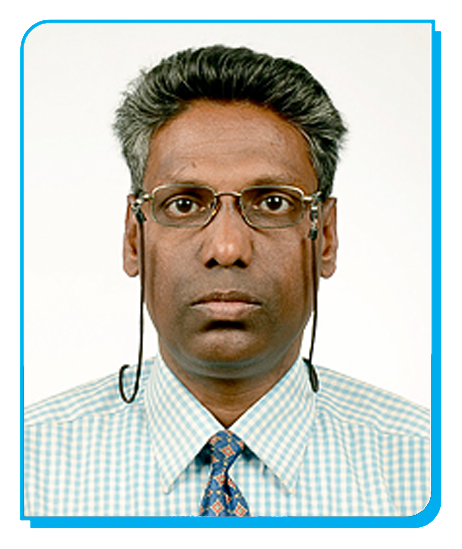Date: 01/05/2025
Dear Weed Science Fraternity

At the outset, I offer my heart-felt reverence and inner-touched obeisance to Almighty God, who is the cause of all causes.
I profusely thank all the esteemed members for giving me an opportunity to serve the Indian Society of Weed Science (ISWS) as President for the biennium 2025-2027. I duly welcome the new Executive Council (EC): Dr. Ummed Singh & Dr. P. Murali Arthanari (Vice-Presidents); Dr. V.K. Choudhary (Secretary); Dr. D. Subramanyam & Dr. P. Saravanane (Joint-Secretaries); Dr. Yogita Gharde (Treasurer); Dr. A. N. Rao (Editor-in-Chief); Dr. J.S. Mishra (Ex-President); and Dr. R.P. Dubey (Ex- Secretary) and request their whole-hearted support in the functioning of ISWS in the coming days. I also thank the previous EC: Dr. J.S. Mishra (President); Dr. Manoj Kumar Singh & Dr. Anil Dixit (Vice Presidents); Dr. D. Subramanyan & Dr. S.P. Singh (Joint Secretaries); Dr. P.K. Mukherjee (Treasurer), and Dr Sushil Kumar (Editor-in-Chief) for their efforts to keep up the growth and professional leadership of ISWS. Their yeoman service is highly appreciated. To achieve the goals of any organization, the voluntary contributions of its members count and are very essential. We, the new EC are optimistic and solicit your all-out help and support towards achieving the goals of ISWS and upliftment of weed science.
Weed Research Thrusts: To continue with crop production amidst thumping competition loss from weeds faces severe challenge in this era of changing climate and global warming. Weeds, defying many currently-used control measures won’t be an unusual phenomenon. Seasonal widening of weeds amplitude, shifting and resistance of weeds, preponderance of perennial and parasitic weeds may pose severe threat in the coming days. In this circumstance, multidisciplinary/ transdisciplinary weed research is essential for depleting weed seed bank and combating the negative impact of weeds. Weed research needs to be tuned up to higher scales to generate new knowledge and newer approaches involving modern tools and applications. Understanding artificial intelligence (AI)/ machine language (ML)/drones/robotics for weed management needs a scaled-up on-station to on-farm research involving stake-holders. Research has become increasingly important now-a-days on: climate-adaptive IWM involving data analytics, digital tools, and diversified tactics; weed genetics, genomics & RNA interference (RNAi) for difficult-to-control problematic weeds, herbicide-tolerant crops & stacked trait resistance to multiple herbicides for managing multiple problem weeds; mapping/ quantifying invasive weeds spread, vigour and management under changing climate; development of selective organic herbicides/ botanicals/ bioherbicides; novel and smart herbicides formulations, and their role towards maintaining biodiversity, and carbon, energy, and environment footprints.
Policy Interventions: A National Task Force may be formed, and a robust weed management policy, which is holistic, scientific, farmer-centric, balancing crop productivity, environmental sustainability, and human/animal health, should be framed up with standard operating procedures (SOPs). Regional/national weed risk analysis, weed control impact analysis, crop/ cropping system-based IWM modules may be executed apace; farmer-applicator certification and access to drones, AI-enabled robots, and remote sensing tools; seed certification standards; stringent biosafety and environmental risk assessment for herbicide-tolerant crops should be put under a policy for better regulation and operation. The ISWS may play pivotal advisory role to help Government for policy decision, particularly for AI-based devices, herbicides/bioherbicides/organics recommendation in challenging production systems.
ISWS Agenda: Several immediate actions need to be taken up on a priority in the following strategic agenda of ISWS for achieving professional excellence.
- Exploratory, corrective and decisive measures on a war footing for better visibility, more international readership and higher impact factor of IJWS; provision for publishing at least one Special Issue of Review Articles on frontier areas of weed science, 1-2 review articles by reputed authors in each issue of IJWS, inclusion of foreign research articles in each issue;
- Introducing New ISWS Events like Academia-Industry collaboration meeting; Think Tank Students Speaker Satellite Webinar, Corporate Speakers Webinar;
- Strengthening of the functioning of Councillors, which should touch upon more the regional burning problems of farmers and mentorship of students, involving AICRPs and 2-3 corporate members;
- Advanced Charter of EC Meeting, ISWS Events/Webinars, and Online extended EC meeting with editors & councillors;
- Updating the list of members, and Membership drive involving cross-disciplinary scientists, students, industry personnel;
- Smart Online system for smooth uploading of research articles and award applications;
- Invigorating Newsletter with more space for novel PG research and farmers ITKs/innovative ideas on weed management;
- A unified Interaction Group of novice weed scientists and PG students for discussion on weed researchable topics/experiments/ weed control options;
- Instituting new awards/fellowships/sponsorships from the donations of corporate sectors, friends/families of distinguished academicians/ scientists, and others.
Finally, I assure that this learned and enthusiastic EC will leave no stone unturned for resolving these issues and to fulfil the hopes and aspirations of the weed science community. It will carry forward the rich legacy of ISWS through making collective efforts and decisions and put up the best for upholding the name and fame of ISWS and keeping the banner of ISWS flying higher and higher.
T.K. Das
President, ISWS